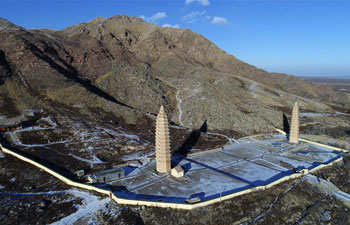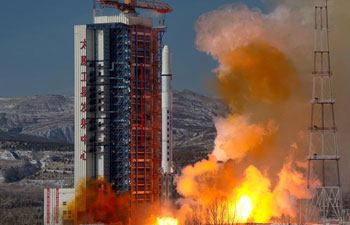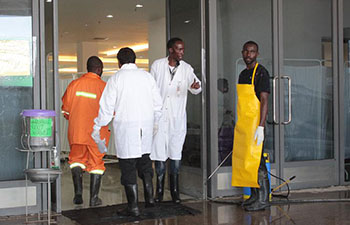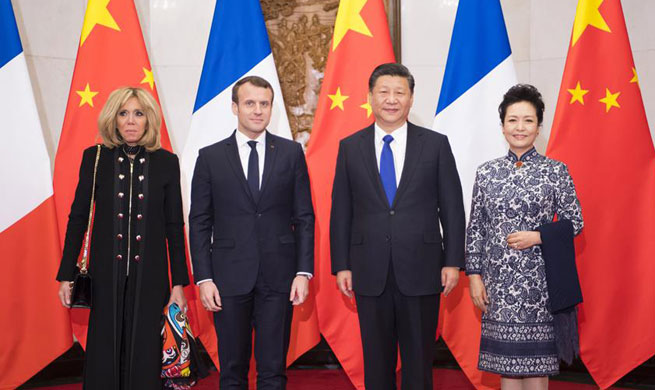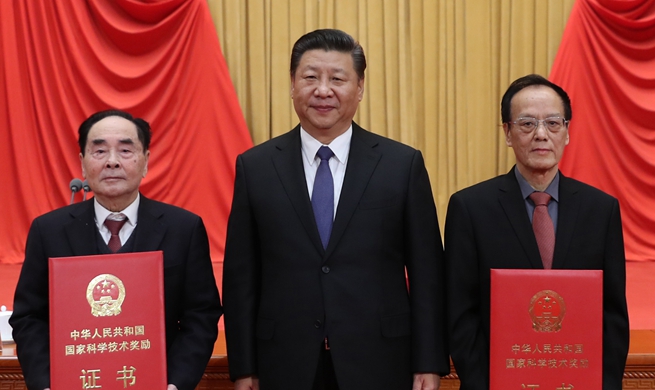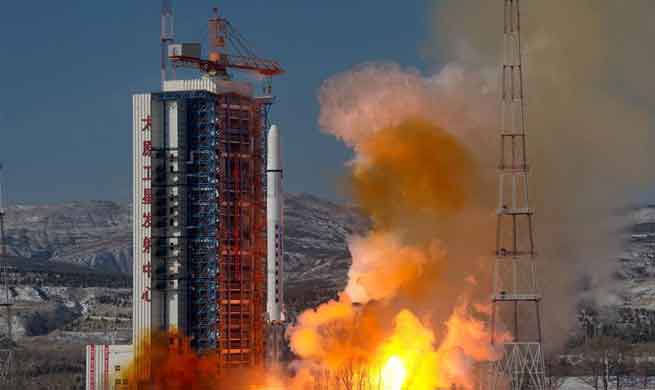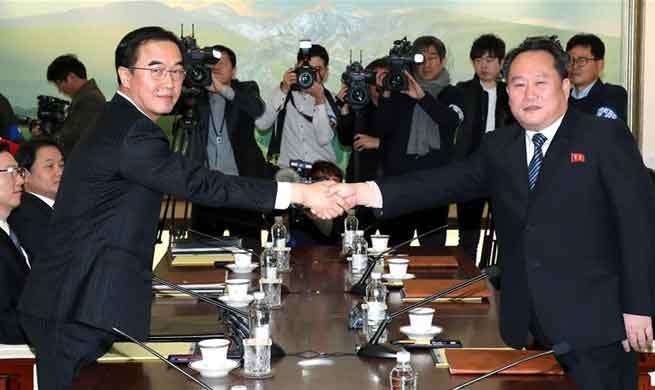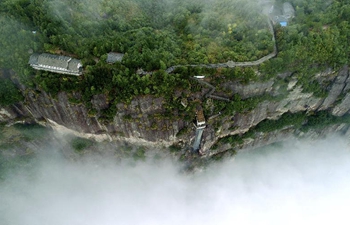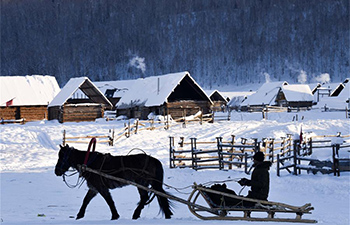SEOUL/PYONGYANG, Jan. 9 (Xinhua) -- Following several good-will gestures from both sides, the two Koreas on Tuesday held rare high-level talks at the truce village of Panmunjom, as the world watches for a possible breakthrough to avert the dangerous escalation of tensions there.
The talks, the first such since December 2015, started at 10:00 am (0100 GMT) as previously scheduled at the Peace House, a building in the South Korean side of Panmunjom straddling the heavily guarded inter-Korean land border.
In a sign that the two delegations did not loath their rendezvous, the talks remain ongoing hours after starting.
So far, a key result of the talks is that the Democratic People's Republic of Korea (DPRK) has agreed to send a "high-ranking" delegation to participate in the Winter Olympics in the South Korean city of PyeongChang, according to local media reports.
Top DPRK leader Kim Jong Un expressed a willingness to take part in the upcoming games in his New Year speech, in a positive response to Seoul's earlier invitation to attend the games, slated to start on Feb. 9.
Ri Son Gwon, who heads a five-member DPRK delegation for Tuesday's talks, said in his introductory remarks that he hoped to give the New Year's gift to the people of the Korean Peninsula.
In response, top South Korea delegate Cho Myoung-gyon said that he expects the sporting event to become a peace festival with the "precious visitors," from the DPRK.
Cho, also South Korea's unification minister, said the inter-Korean dialogue was resumed after a long hiatus, calling on the DPRK to continue talks with a firm will and patience.
Aside from the Winter Olympics, the two sides are also expected to discuss possible reunions of seperated families as well as military issues on the Korean Peninsula.
The reunion of families across the military demarkation line is an emotionally-charged issue often reflecting political reality.
People from South Korea and the DPRK have been banned from visiting and contacting each other since the 1950-53 Korean War, which ended in armistice instead of a peace treaty. The two Koreas are technically still at war.
While the DPRK has not announced the on-going meeting in Panmunjom, its official media have recently heaped praise on Kim's move to improve inter-Korean relations.
The official Korean Central News Agency (KCNA) said in a commentary Monday night that top leader Kim "clarified the bold and compatriotic stance and proposal for improving inter-Korean relations in his New Year Address."
The official Rodong Sinmun said in an earlier commentary that Kim's appeal for a detente with Seoul has won overwhelming support at home and abroad.
The recent developments on the Korean Peninsula are indeed offering a glimmer of hope for a world increasingly concerned over a possible nuclear confrontation in the region.
The DPRK fired multiple missiles, among them inter-continental ballistic missiles alleged to be able to hit the U.S. mainland, and conducted its sixth nuclear test in 2017, while the United States and South Korea held massive joint war games on waters surrounding the peninsula.
The exchange of insults between DPRK top leader Kim and U.S. President Donald Trump also helped aggravate the situation.
Kim's New Year olive branch, and the ensuing decision by the South Korea and United States to suspend joint military drills until after the PyeongChang Games marked a refreshing change from the tense atmosphere surrounding the region, observers noted.
However, experts call for a cautious optimism, with pundits warning against putting too much pressure on the talks.
"It's unrealistic to expect them (Pyongyang and Seoul) to achieve too much given the events of the last few years," said Troy Stangarone, senior director at the Korea Economic Institute, a think tank based in Washington DC. "If they can help to reduce tensions and spur on a successful Olympics they will have been successful."
Meanwhile, Wang Junsheng, an international relations expert with the Chinese Academy of Social Sciences, said the recent reconciliatory gestures between the two Koreas have, to some extent, paved the way for future interactions, but it is still too early to say they marked a turning point for the Korean nuclear issue.
"An optimal way ahead would be, for the parties to build trust first, then expand the bilateral talks to multilateral dialogues, and finally proceed to resolve the issue," he said, adding that China's proposal of "double suspension" and "double-track approach" takes into consideration of the realities on the peninsula and the interests of different parties as well and could "really lead to a solution" of the crisis.
(Xinhua conrrespondents Zhu Dongyang and Liu Chen in Washington also contributed to this story.)





